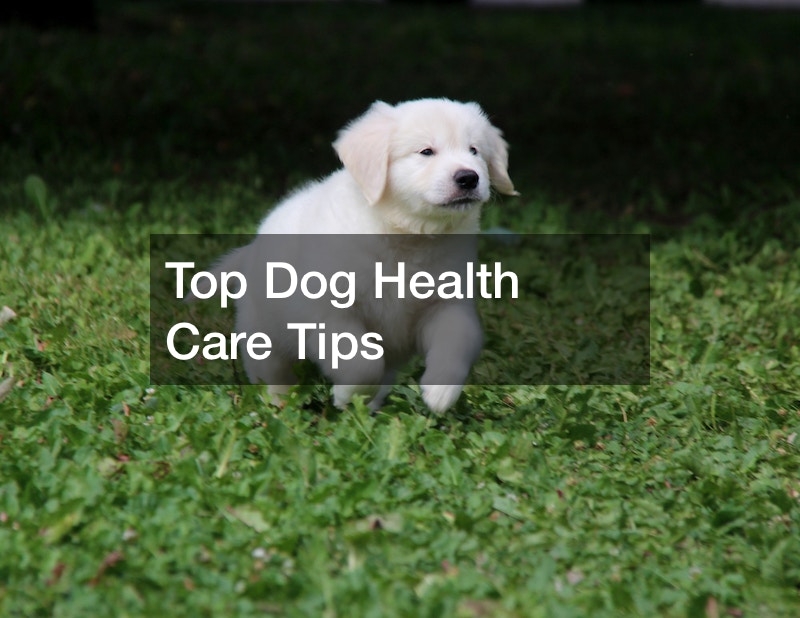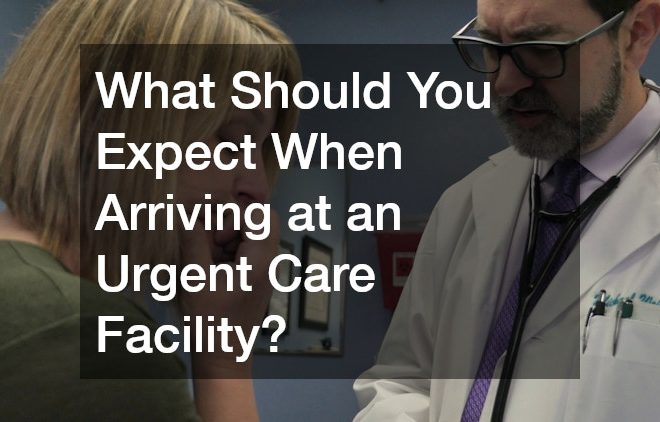
Top Dog Health Care Tips

So, you are now a homeowner. Congratulations! While bringing dogs into a new home is a wonderful experience, it may also be stressful for you and your dog before everything is in place. You must ensure that your new home is safe for your dog’s health and can thrive well in the new surroundings. It may take days, months, or even longer for your dog to become used to the new home. However, they can easily adapt and lead a healthy lifestyle with proper measures.
How to Ensure Proper Health Care for Your Dog
To ensure your dog is healthy, you must meet its physical and emotional requirements. This means providing it with shelter, clean drinking water, nutritious food, and an opportunity to live in a dog-proof home. It also entails maintaining the dog’s happiness by giving it lots of opportunities to play, exercise, and mind stimulants.
Here are the top dog health care tips for new homeowners:
Feed Your Dog with Healthy Food and Clean Water
One of the top dog healthcare tips for new homeowners is providing healthy food and clean water at all times. The appropriate pet food will improve the quality of your dog’s life by giving it the nutrients and energy it requires.
Find an animal store near you with various dog meal options. When selecting the best dog food, look for a good balance of carbs, fats, and proteins. Also, ensure the food is rich in fiber for proper digestion.
In addition to nutritious ingredients, choose a pet meal formula suitable for your dog’s age, activity level, and health. Before switching your dog to a specialized diet, consult the veterinarian first.
Get Regular Vaccinations
Vaccinating your dog is one of the top dog health care tips for new homeowners. A dog should have its shots in the first few weeks after moving into a new house. Make an immunization appointment as soon as you bring it to your new home.
The veterinarian will establish a regimen for your dog’s immunizations during your first visit to protect it against disease and illness. Vaccinations help prevent diseases like distemper, rubies, Lyme disease, canine hepatitis, and feline leukemia. Even if you have a senior or adult dog, ensure it gets its immunization too. Vaccinations aren’t just for puppies, and they do need renewal.
Maintain a Healthy Weight
In America, more than half of the dogs are obese. Overweight dogs are more likely to have a weakened immune system, metabolic disorders, joint diseases, cardiovascular disease, and other health issues.
They are also less mobile, which limits how much they can run, play, or engage in other activities. Feed your pet per the vet’s recommendations, and resist the urge to give in to their charming eyes when they beg for more!
Schedule Regular Veterinarian Visits
Regular vet service is one of the top dog health care tips for new homeowners. Due to their shorter lifespans than humans, your dog has to be examined in an animal hospital or at home by a vet at least once or twice a year.
Depending on its immunization schedule, your pet may visit the veterinarian more regularly when younger. However, establishing and sustaining good pet health necessitates continuing these appointments as they age. Get a vet near your new home for easy access.
Protect Against Parasites

Fleas are the most prevalent external parasite that can afflict pets and cause illness, hair loss, and itchy skin. Your dog may contract internal parasites from fleas. The most prevalent internal parasite that affects dogs is tapeworms. Take the necessary measures to fumigate your new home before you bring in your dog.
Prevention through deworming is essential all year long. Regular flea and intestinal parasite control are crucial when heartworm infection is endemic. Please consult your veterinarian about keeping your dog safe from worms and fleas, as it is one of the top dog health care tips for new homeowners.
Desex Your Dog
The main reasons for dog desexing are animal control and prevention of certain health conditions such as testicular cancer in a male dog. It also reduces the risk of pyometra and mammary cancer in female dogs.
It involves permanent removal of a dog’s reproductive organs through surgery to prevent it from breeding. Such a dog is also less aggressive and safe to the community around your newly acquired home. Therefore, this is one of the top dog health care tips for new homeowners.
Regular Dental Care
Like humans, dogs may experience gum diseases, tooth pain, and tooth loss. Your dog’s teeth will remain healthy and strong through regular oral cleaning and brushing.
Despite being one of the dogs’ most prevalent preventable ailments, many owners never even bother to look into their dog’s mouth. By the age of three, up to 80% of dogs exhibit dental disease symptoms, which leads to abscesses, chronic pain, and loose teeth. Dental hygiene is among the top dog health care tips for new homeowners.
In addition to getting regular teeth cleaning services by veterinary dentists, periodontal disease can be controlled when you, as a dog owner, practice proper dental hygiene on your dog. Owner care involves brushing, dental treats, and mouthwash.
Exercise Your Dog Daily
Give your dog the appropriate amount of exercise for its breed. While some breeds have to go on long walks for at least 30 minutes twice a day to burn off their energy, a puppy may only need to play fetch or other ball games to tire it out.
Regular exercise assists in burning off excess energy that, if left unattended, could lead to behavioral issues such as digging, chewing, or excessive barking. Identify dog parks in your new home area and abide by their rules.
Challenge Your Dog Mentally
Dogs, like humans, require a lot of mental stimulation to remain healthy and content. To keep your dog mentally stimulated, teach them new tricks, give them a puzzle toy, and play new games with it.
Socialize Your Dog

When you are in a new environment, it is important to familiarize your dog with your neighbors’ dogs, the vegetation around them, and new sounds or smells. Socialization calls for gentle treatment whereby you introduce your dog to frightening things while keeping a safe distance. Reward calm conduct and gradually bring the object closer so the dog can positively associate with it.
Introduce Physical Therapy for Your Dog
Through various treatments such as massage, electrical stimulation, heat treatment, and acupuncture along with exercise and hydrotherapy, physical therapy can help restore a dog’s health. This integrated strategy might enhance joint and muscle health, lessen discomfort, and support a dog’s recovery from surgery, illness, or injury.
Veterinarians may advise physical therapy as an alternative to surgery or as a way to challenge and reinvigorate aging dogs mentally. Therapy is one of the top dog health care tips for new homeowners with injured or ill dogs.
Groom Your Dog Regularly
One way to groom your dog is by brushing it. Regular brushing will lessen shedding and allow you to examine your dog’s physical condition. The coat should be kept free of knots. To avoid knots and to remove tangles, you might need to combine the use of a comb and brush for this.
Dogs who shed should receive a weekly shampoo bath until the shedding stops. Additionally, once in a while, you should engage a professional dog trimmer to reduce your dog’s coat.
Another way of grooming your dog is by trimming its nails. Although it can be challenging, maintaining your dog’s paws healthy requires that you trim its nails regularly. Take it slow and steady, careful to avoid cutting into the quick, the portion of the nail still alive inside.
Keep Your Dog Away from Human Food
Most human foods such as avocadoes, chocolates, and onions are poisonous to dogs and can lead to severe health effects. Keep human food out of your dog’s reach, and take extra caution around candies and gum because many contain xylitol, a sugar substitute that is poisonous to dogs.
However, sometimes your veterinarian can intentionally recommend human foods such as plain rice or canned pumpkin to conceal oral medication for conditions such as diarrhea or digestive upset.
Keep Your Dog’s Supplies Clean
Keep your dog’s food and water bowls clean always. Before adding more food or water, empty the bowls and clean them with pet-safe detergents. Your pet’s bedding needs to be washed just as frequently as yours. Pet beds and blankets accumulate numerous allergens over time, irritating your dog’s skin.
Other supplies that need to be cleaned frequently include collars, leashes, harnesses, and toys. When moving to a new home, ensure all the items, such as carpets your dog likes to rest on, are cleaned thoroughly with the help of carpet cleaning services. It will reduce the transfer of dirt, fur, and other toxins to your new home.
How to Prepare Your New Home For a Dog
You will have to take care of a few things to make your dog adjust smoothly in your new home by making the environment dog-proof. Here are the top dog health care tips for new homeowners that need to be considered before bringing in a dog:
Find Ideal Spots in Your Home for Dog Supplies
Expect a few accidents, possibly for a few days, as a dog will likely be enthusiastic or anxious while moving into a new home. Pick ideal locations for your pet’s bed, food bowl, water bowl, and play areas that are simple to clean.
Keep Items Out of Reach
Keep precious items out of reach, including expensive table lamps, vases, and regularly used items like remote controls and cell phones. Inspect the storage areas in your house, such as the closets and cabinets, where you’ll be keeping utensils, shoes, clothes, and any makeup or personal care products your dog might access.
Make sure your pet can’t access any of these items by putting them up high, in drawers, or behind doors that are fastened with ties. Some dogs love chewing on things and are drawn to anything with an intriguing smell. To prevent your dog from being tempted to chew on the leaves or flowers, place your house plants behind furniture rather than on the floor.
Check for Areas That Might Be Dangerous
Make sure a screen or grate covers the fireplace if your new house has one. If a dog shows excessive curiosity, you might need to make the room with the fireplace off-limits to them.
Cover Electric Cords
Dogs enjoy chewing on anything and anything, including electrical cables. You can already envision what might happen when pups and wires mingle. For them, electrocution can result in serious injuries or even death.
One precaution you can take to avoid such an occurrence is using electrical plugs that are out of their reach. If that isn’t possible, you can always use concealers, wrap cords, or a sturdy PVC pipe around them.
Secure Your Home and Yard

To reduce the likelihood that your dog will escape the house, ensure that all the doors and windows are fastened properly. If your dog has access to the yard throughout the day, check to ensure the fence is safe and in good maintenance.
You can create a safer outdoor space for your dog by keeping it clean and conducting tree removals to avoid old branches falling on the dog. To make it simpler for dogs to get outside while you’re away, you may consider investing in a pet door, which can be either fixed into a door or wall directly or added as a panel to a sliding door.
Make these top dog health care tips for new homeowners part of your routine to maintain a conducive environment for your dog and enhance its health and safety.


